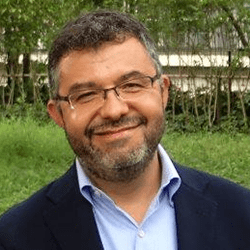Coaching in a Foreign Language (and Doing a Great Job)
As professional coaches, we would like to expand our practice by reaching out to our ideal clients and supporting them in the best possible ways. We do our best in expanding our services, but mostly in our native language. For those of us who are the native speakers of major world languages, it may not be an issue because the markets in those languages are big enough. When this is not the case, though, it could mean lost opportunities. There are many coaches who can speak one or more foreign languages fluently, but they shy away from calling themselves bilingual or multilingual coaches. For example, in Japan where I live and work, I have Japanese coach friends who say, “One day I would like to coach non-Japanese executives in English, but I am not sure if I really can.” When I hear them, I usually ask, “What is stopping you?” They are perfectionists, and they don’t have confidence. They lose out to their negative self-talk.
The self-talk in their heads usually goes like this: “I will never be like a native speaker, so why bother? What happens if I miss a word? What happens if I cannot understand what the client is saying? What happens if I am misunderstood? Coaching requires intimacy and trust. Will I be able to establish that? Why should the client choose me instead of a coach who can work with them in their native language?”
You can hear the saboteur in each of these sentences. It is the voice of doubt and anxiety. Every non-speaker of a language goes through this phase when they want to go to the next level in their expertise. I went through this phase as well. Let me bring some counter-arguments.
“I will never be like a native speaker, so why bother?”
For example, in English, the number of non-native speakers is well-above the number of native speakers. It is impossible to be a native speaker of a foreign language by definition, but we can get as close as we can.
“What happens if I miss a word? What happens if I cannot understand what the client is saying?”
In coaching, we listen at various levels. Spoken language is one of them. But we also listen the clients’ body language and perceive their energy levels as well. We know that what they don’t say is as important, if not more important, than what they say. If we want to be sure, we can ask clarifying questions, as we do when clients use technical jargon. We can also describe the situation with metaphors. We can be creative and use the occasion to dig deeper into clients’ world. Our effort to understand them better will strengthen the relationship.
“What happens if I am misunderstood?”
This risk is there even if we coach in our native language. We can feel the moment we aren’t conveying what we want to say the moment we lose the connection with clients and see the confusion in their faces. We can jump in, clarify and move on.
“Coaching requires intimacy and trust. Will I be able to establish that?”
Intimacy and trust are beyond words. Sincerity and honesty can be conveyed in a few words. It is a feeling and has nothing to do with how many words we speak properly.
“Why should the client choose me instead of a coach who can work with them in their native language?”
It is because you care about their careers, leadership, development and well-being. Again, what matters is the connection and skills you bring as a coach. Clients would like to get the best support in their journey, and you are promising to provide that. It has nothing to do with the language, but more to do with the quality of coaching relationship you will form with the clients.
I want to conclude by mentioning another perspective: the personal and professional development side. Interacting in a foreign language means looking through a window and seeing a whole new world. Because the language and the culture are interlinked, working in a foreign language enables us to see new connections, ideas and possibilities. Differences among humans are all on the surface. Beneath the layers of language and culture, we have so much in common in terms of basic emotions, values and ideals. As coaches, we need to operate at that level because we are trained to respect and work with, and in, diversity. Don’t miss out seeing those commonalities. And don’t be shy to share what you have with the others who might be waiting for you, their ideal coach, in whichever way you can.


